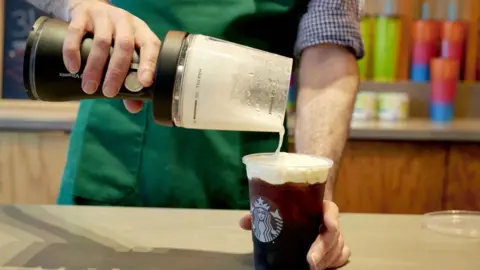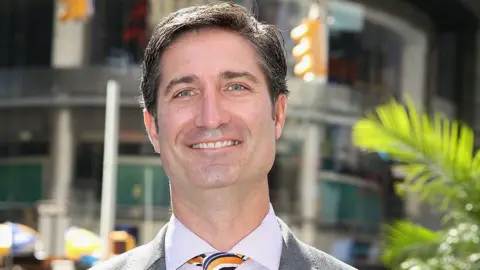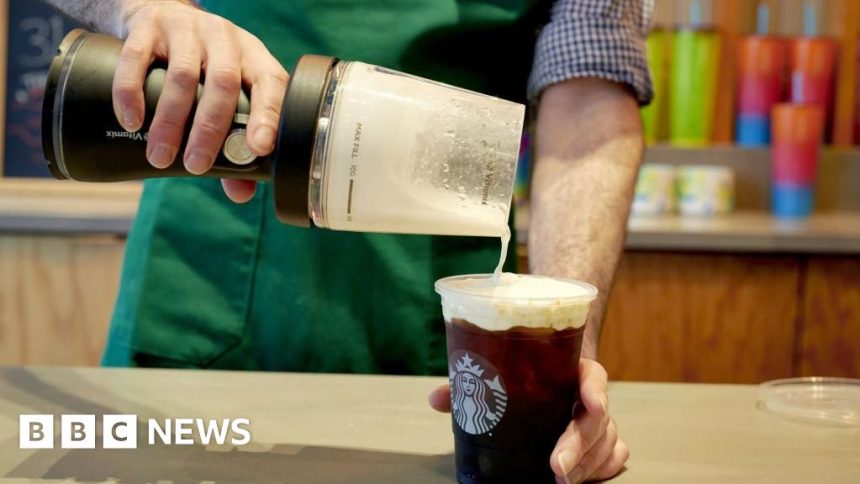Starbucks replaces boss after sales slump
 Getty Images
Getty ImagesThe boss of Starbucks is leaving the company after less than two years in charge as the coffee chain looks for a fix for its flagging sales.
Chief executive Laxman Narasimhan is stepping down and will be replaced by Brian Niccol, the head of Mexican grill chain Chipotle, the company said.
The shake-up comes as Starbucks is grappling with a slump in sales amid a backlash to price increases and boycotts sparked by the Israel-Gaza war.
Howard Schultz, a former executive who oversaw the growth of the coffee chain into a global powerhouse, said he believed Mr Niccol was “the leader Starbucks needs at a pivotal moment in its history”.
“He has my respect and full support,” Mr Schultz said.
Shares in Starbucks jumped more than 20% following the announcement.
A change in leadership at the coffee chain has been brewing for the last two months, Starbucks board member Mellody Hobson told the Wall Street Journal.
Last month, the firm said global sales fell 3% annually in the three months to the end of June amid weakness in the US and China.
The company has faced criticism for long waits for drinks and a sharp rise in prices.
Activist investors such as Elliott Investment Management, a firm known for taking stakes in companies and pushing for leadership and other changes, have also been piling on pressure.
Mr Schultz had selected Mr Narasimhan, a former executive at PepsiCo and Reckitt, as his successor in 2022, who took up the reins full-time in March 2023.
But despite his choice, Mr Schultz voiced concerns publicly about the direction of the company in the spring, after it reported an unexpectedly severe sales fall.
‘Tougher challenge’
 Getty Images
Getty ImagesIncoming boss Mr Niccol has led Chipotle since 2018, helping the brand recover from a crisis after food poisoning outbreaks.
In recent months, it has been seen as a bright spot in the restaurant industry, where many businesses have reported customers cutting back.
But Sharon Zackfia, an analyst at investment bank William Blair, said the new chief executive could be inheriting a tougher challenge at Starbucks, noting that the company is both bigger and its problems more complex.
“While we cannot help but be more optimistic on today’s news, we suspect the path to recapturing lost sales will be less linear than it was at Chipotle, which did not face boycott pressures, perceived value questions or material speed of service issues,” she wrote.
Starbucks saw its sales boom as the economy re-opened from the Covid pandemic lockdowns.
But the firm soon found itself embroiled in fight with staff in the US, thousands of whom have voted to join a union, tarnishing its progressive reputation.
Last year, after Starbucks sued the union for a social media post expressing “solidarity” with Palestinians, the dispute landed it in the middle of debates over Israel’s war in Gaza, sparking global boycott calls.
Starbucks has blamed misinformation about its views, after issuing a blanket statement condemning violence in the region.







